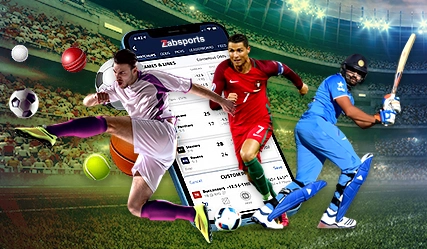Read Our Blog
How AI and Machine Learning Are Transforming Cricket Betting Software Development?
In the ever-evolving world of cricket betting, technology plays a crucial role in shaping the future of the industry. Artificial Intelligence (AI) and Machine Learning (ML) have emerged as game-changers, revolutionizing how cricket betting software is developed and utilized.
How Do Fantasy Football and Predictive Games Drive Revenue for Football Leagues?
Fans today are changing football. Soccer or Association Football is the most popular sport in the world after cricket, with five billion fans worldwide. This figure is significant in light of the fact that most of these fans use mobile devices to consume football content. This fact has made major football leagues change course over the years and start serving fans where they are.
Latest Trends in Sports Betting Apps and Software 2024-25 - Zabsports
Explore the Latest Trends in Sports Betting software and Apps of 2024-25 at Zabsports! Connect with us on WhatsApp for Expert Sportsbook Consultancy.
The Importance of Compliance in the Sports Betting Industry
The Casino Control Commission of the State of Ohio recently imposed more than $800,000 in fines on sports betting companies. Two of the biggest violators were some of the biggest players in the industry. DraftKings illegally claimed bettors could make “free” bets and sent 2,582 ads to residents under the legal betting age of 21, urging them to download its mobile app and claim $200 in free bets.
Importance of Data Security in Sports Betting Software - Zabsports
What if you knew that your sports betting business is going to be part of a USD $167.66 billion industry by 2029? You will probably take steps to double down, or diversify in several different sports, or expand your geographical horizons to leverage this opportunity.
How Chatbots are the new game changers in engaging sports fans?
Ever got an instant ‘hello’ from a chat window upon visiting a website? That’s an artificial intelligence persona that mimics human interaction with customers when they visit websites. They are called Chatbots.
Now 28% GST on online gaming, casino and horse racing: Here’s the silver lining
If you are an online game provider, a fantasy sports platform, or an online casino based out of India, this blog is for you. In the first week of August, the Indian Government imposed a 28% Goods and Services Tax (GST) on the entry fee for casino, online gaming, and horse racing. According to Business Standard, it is basically a 28% tax on teh full face value of bets in the above mentioned games.
How to create an android app like Football League 2023? and what does it cost?
British Premier League (BPL), or English Premier League (EPL), founded in 1992, is now in its 31st year. It is the most watched football league in the world and broadcast in 212 territories. The league enjoys a massive TV audience as it reaches 643 million homes with a potential of 47 billion people watching it every year.
How to create an app for East Asia Super League 2023 and what does it cost?
The 2023-24 East Asia Super League (EASL) is an international basketball club competition and the second regular season of the East Asia SUper League. The league attracts millions of fans with teams from domestic leagues in South Korea, Japan, Philippines, Taiwan, and a franchise team representing Greater China.
How to build a Cricket Betting App Platform for World Cup 2023?
No wonder thus that cricket betting is also one of the most popular types of betting games in the world. Cricket betting apps such as Parimatch, 1Win, Melbet, Dafabet etc enjoy millions of downloads every month and billions of hours of digital consumption.
How to Create a Sports Betting Website and what does it cost?
The sports betting market was valued at USD 83.65 billion in 2022. That means sports betting web applications are set to rake in the moolah. Let’s talk about how to create a sports betting website in 2023.










